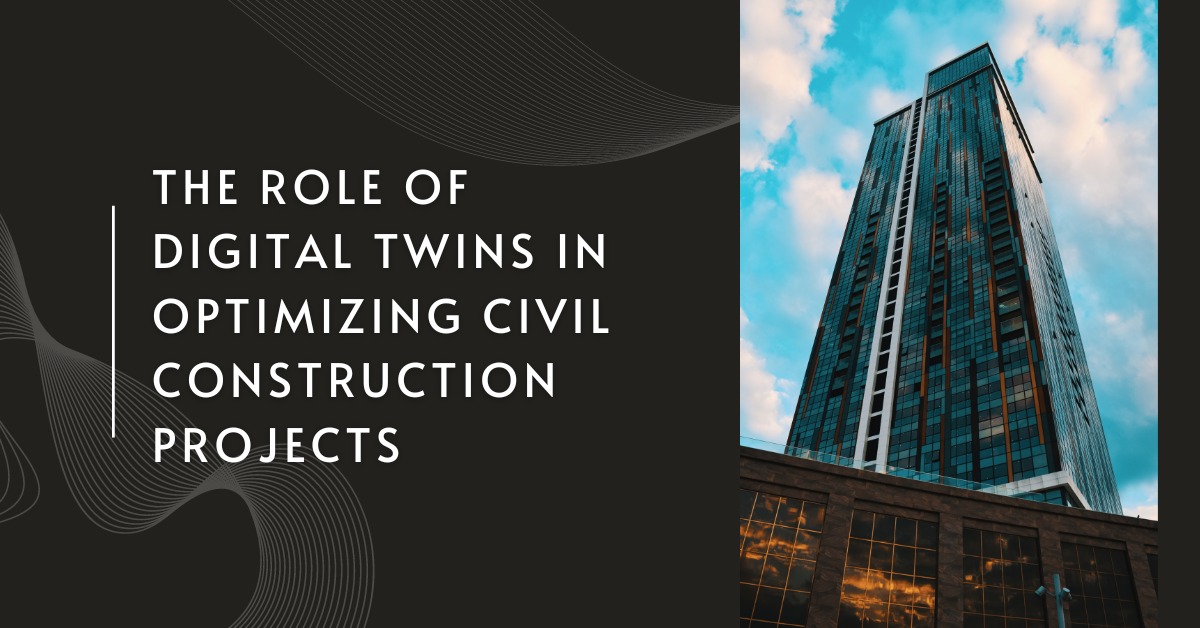In the bustling metropolis of Chennai, where rapid urbanization is the norm and infrastructure demands are ever-growing, the role of civil engineering companies and contractors is paramount. As the city expands, so do the challenges in construction projects, from managing resources efficiently to ensuring the safety and sustainability of structures. In this dynamic landscape, the emergence of digital twins is transforming the way civil construction projects are planned, executed, and maintained.
Digital twins, virtual replicas of physical assets, processes, or systems, are revolutionizing the construction industry in Chennai. These virtual models, powered by advanced technologies such as Building Information Modeling (BIM), Internet of Things (IoT), and Artificial Intelligence (AI), provide a comprehensive and real-time view of every aspect of a construction project. From initial design to ongoing operations, digital twins enable civil engineering companies in Chennai to optimize processes, mitigate risks, and deliver projects with enhanced efficiency and quality.
One of the key advantages of digital twins in civil construction projects is their ability to facilitate collaboration among stakeholders. Civil contractors in Chennai can work closely with architects, engineers, and project managers to visualize designs, identify potential conflicts, and streamline workflows. By breaking down silos and fostering interdisciplinary communication, digital twins promote transparency and accountability throughout the project lifecycle.
Moreover, digital twins empower civil engineering companies in Chennai to make data-driven decisions at every stage of the construction process. By integrating data from various sources, including sensors, drones, and project management software, these virtual models provide valuable insights into resource utilization, construction progress, and risk management. Armed with this information, contractors can optimize schedules, allocate resources effectively, and anticipate and mitigate potential delays or cost overruns.
In addition to enhancing project planning and execution, digital twins play a crucial role in ensuring the safety and sustainability of civil construction projects in Chennai. By simulating different scenarios and analyzing the impact of design choices on performance and resilience, these virtual models enable engineers to optimize building designs for seismic resilience, energy efficiency, and environmental sustainability. This proactive approach not only enhances the safety and comfort of occupants but also reduces the long-term environmental footprint of infrastructure projects.
Furthermore, digital twins offer significant benefits in terms of asset management and maintenance. By continuously monitoring the performance of structures and infrastructure assets in real-time, civil engineering companies in Chennai can identify potential issues before they escalate into costly repairs or downtime. Predictive maintenance algorithms powered by AI analyze data from sensors to detect anomalies and predict maintenance needs, allowing contractors to schedule repairs or replacements proactively, optimize asset lifespan, and minimize disruptions to operations.
As the demand for infrastructure continues to rise in Chennai, the adoption of digital twins is poised to become increasingly prevalent among civil construction companies and contractors. By harnessing the power of these virtual replicas, stakeholders can drive innovation, improve project outcomes, and contribute to the sustainable development of the city’s built environment.
In conclusion, the role of digital twins in optimizing civil construction projects in Chennai cannot be overstated. From enhancing collaboration and decision-making to ensuring safety and sustainability, these virtual models are revolutionizing the way infrastructure is planned, built, and managed in the city. As civil engineering companies and contractors embrace this transformative technology, Chennai’s skyline will continue to evolve, reflecting not just growth but also innovation and resilience.

